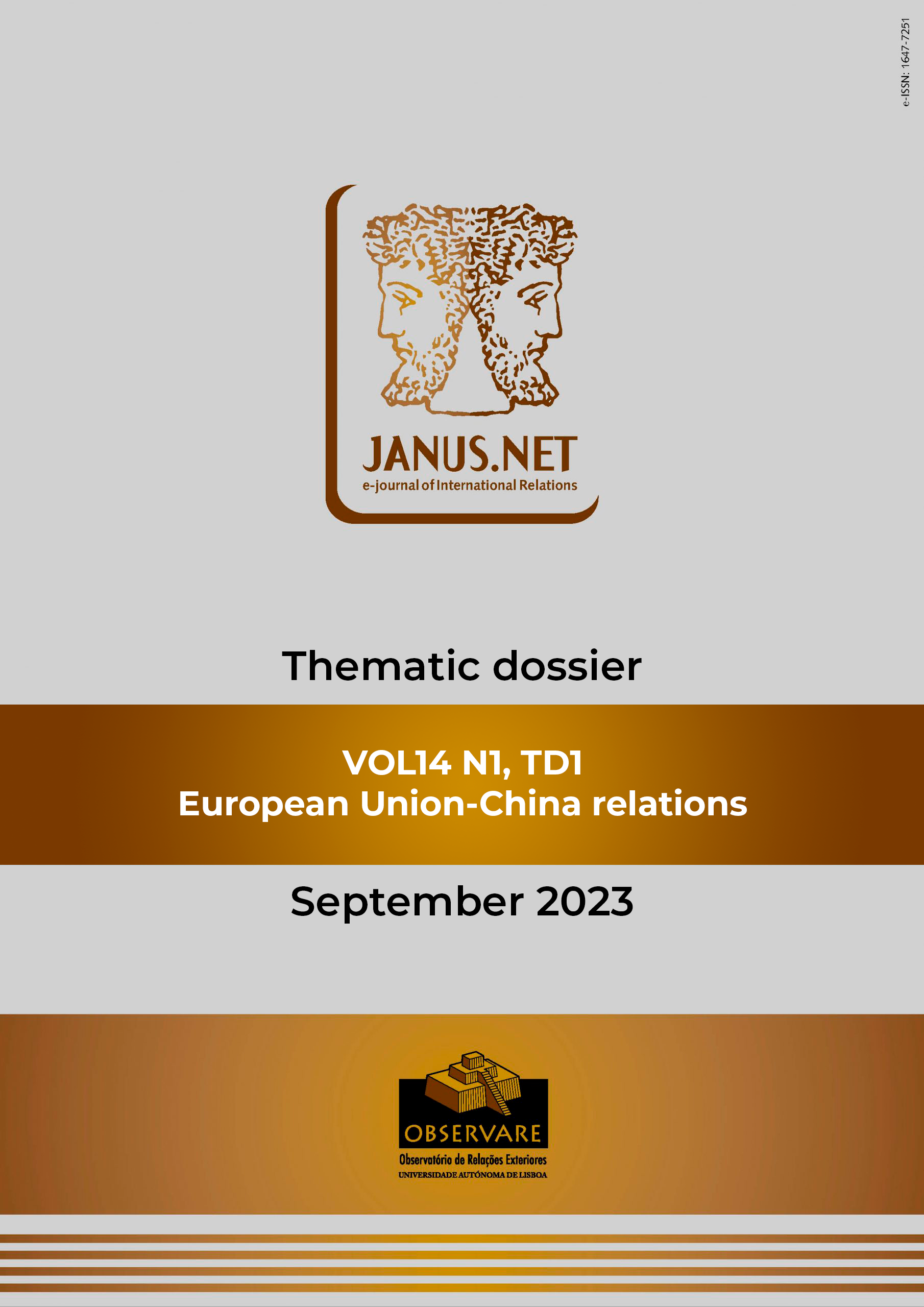PERSPECTIVES ON THE SUSPENSION OF THE EU-CHINA COMPREHENSIVE AGREEMENT ON INVESTMENT
DOI:
https://doi.org/10.26619/1647-7251.DT0123.3Keywords:
EU, EU Parliament, China, EU-China Comprehensive Agreement for Investment (CAI), Public OpinionAbstract
The decision reached by the European Parliament (EP) to suspend ratification of the Comprehensive Agreement on Investment (CAI) introduced a new phase into EU-China relations. This paper examines some of the events leading up to the EP decision, and considers some of the larger consequences of the decision. When on 20 May 2021 the European Parliament passed a motion recommending a formal freeze on the CAI, it brought an abrupt interruption, and possible final conclusion, to seven years of negotiations. The decision resulted in considerable comment in the EU and China. Beyond the question of how China reacted to this unexpected block to future negotiation, and whether the EU Parliament vote could have been foreseen, the paper considers, among other topics, the role of public opinion in the EU. The paper reviews the changing evaluations of China in advanced economies, as mirrored in Pew Research Center surveys. What brought about the suspension was not investment or trade-related differences, but was directly related to human rights issues and labour law issues, and sanctions imposed upon China on members of the European Parliament, with the CAI being signed in the context of crackdowns in Xinjiang and Hong Kong. Accepting the view of Mario Teló that the CAI must be seen not only as a new investment regime, but also as a relevant international event affecting international relations, this paper examines indications of changes in Chinese attitudes towards the EU. While some of those in the EU Parliament who voted for the motion previously might have held a positive view towards developing a new framework, more recent events demonstrate that even were there to exist any resolve towards future negotiations, they could not occur at the price of fundamental European values.


